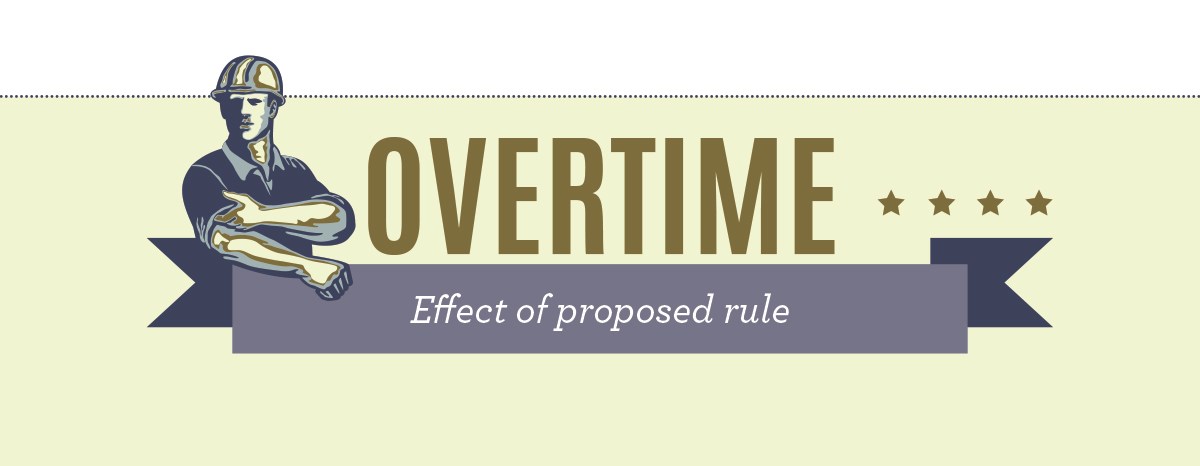
by Bernadette Jones, SPHR, SHRM-SCP
New overtime rules that take effect in late 2016 will more than double the exempt salary, increasing the minimum to $970 a week, or $50,440 a year. Currently, exempt (salaried) workers who make more than $455 a week, or $23,660 a year, are exempt from overtime pay.
When the rules take affect, an employee earning $40,000 annually and working more than 40 hours a week or eight hours in a day will be entitled to overtime compensation. Every exempt employee must pass the FLSA “duties test,” to qualify as exempt from overtime rules.
Your non-profit or small business is probably not exempt from the new overtime rules. According to the U.S. Department of Labor, “Most employees of nonprofit organizations are entitled to the minimum wage and overtime protections guaranteed by the Fair Labor Standards Act.” Furthermore, the department says, “The proposed rule [applies] to employees of enterprises that have an annual gross volume of sales made or business done of $500,000 or more…. For businesses that make less than $500,000 of annual revenue, individual employees may still be covered.” According to the Obama administration, the new overtime rules will affect more than 5 million workers nationwide.
If you are unsure whether your organization is required to comply, you should consult with legal counsel. In addition, there are some common strategies you can take:
- Analyze each job for accurate classification by performing a Fair Labor Standards Act analysis — or essential duties test. Reclassify jobs that do not pass the test as non-exempt positions.
- Decide whether you can afford the new minimum salary for exempt staff. If you can’t, then you’ll be required to pay overtime if a non-exempt employee works more than 40 hours in a week or more than eight hours in a day.
- Limit the number of managers you employ if those managers no longer qualify as exempt and expand the responsibilities of employees who remain in managerial roles.
- Determine whether the added work is worth the overtime costs.
- Review employees who work remotely. Tracking hours for these employees could be challenging. If you are not already tracking remote workers’ hours, you will need a system to do so to ensure that you track and pay overtime accurately.
These proposed changes represent a shift in mindset and practices, increased expense, and many other implications for nonprofit and small business employers.
The new overtime rules will impact many nonprofit and small business owners’ budgets. Start planning now with your in-house HR or payroll staff or contact Bernadette Jones at (510) 243-5254 at Visionova HR Consulting to help you get and stay compliant when the new rules go into effect. Visionova HR Consulting offers a free 30-day trial subscription for Richmond Chamber of Commerce members.
Bernadette Jones is HR Business Partner and Co-Founder at Visionova HR Consulting.
